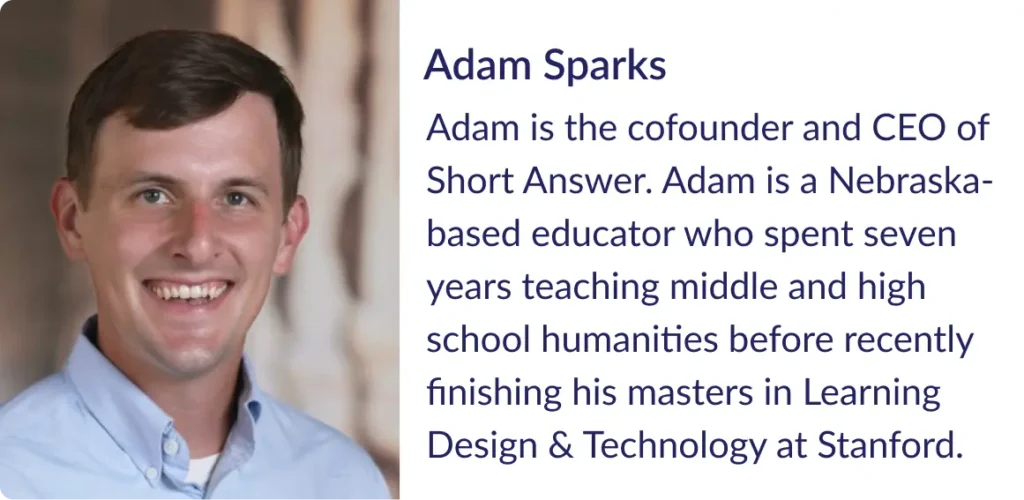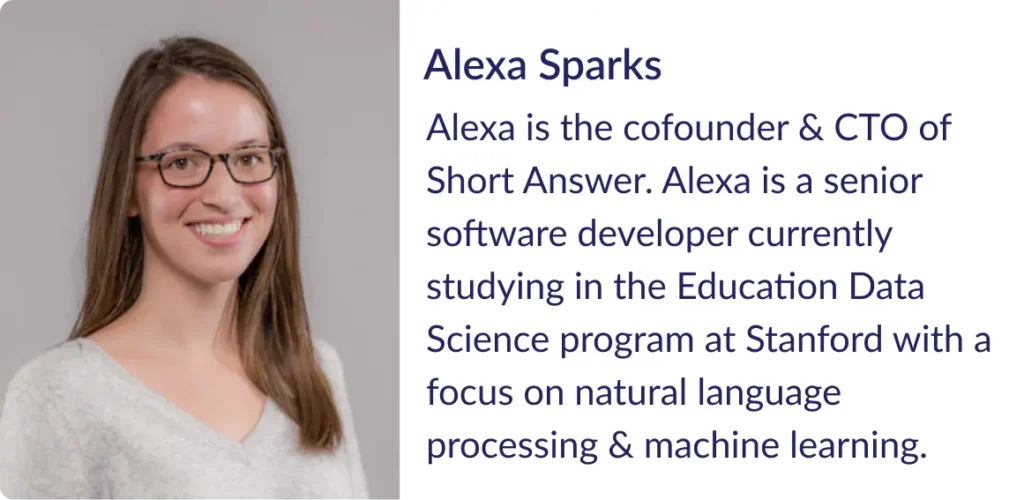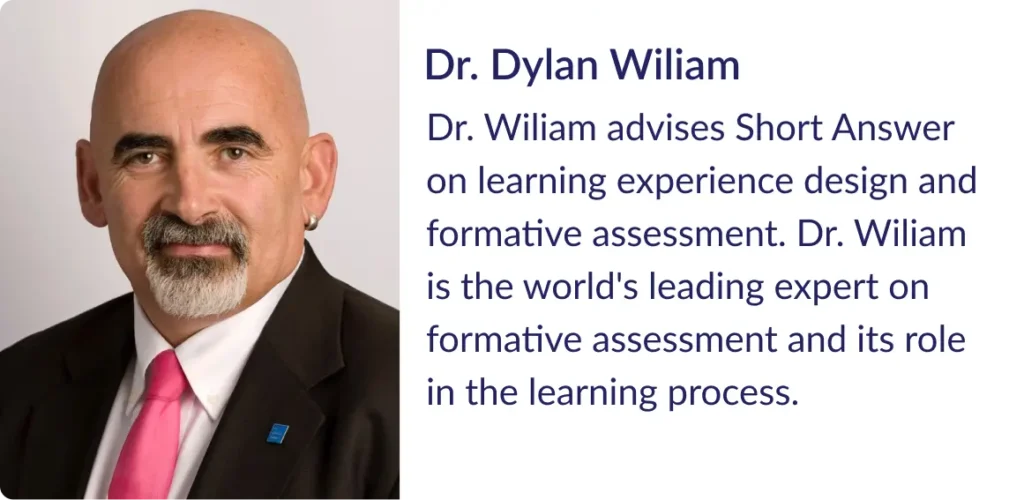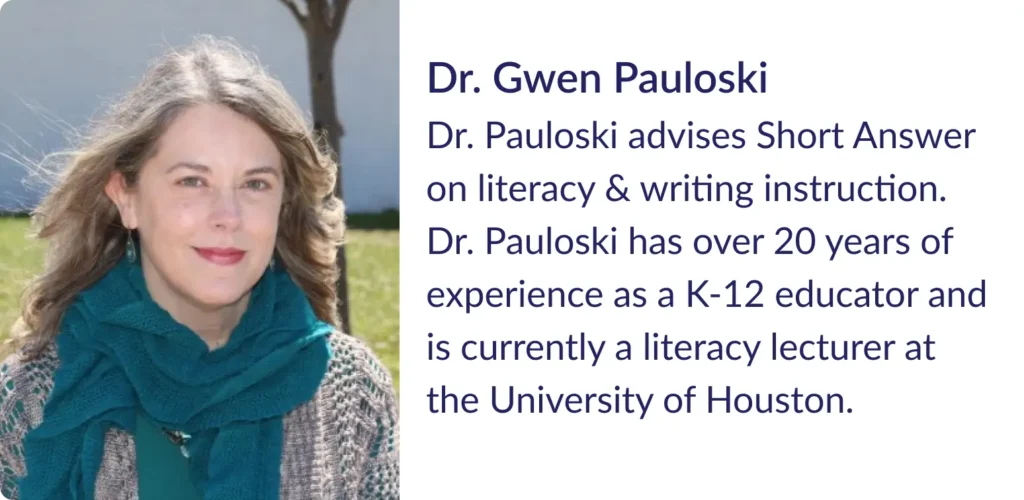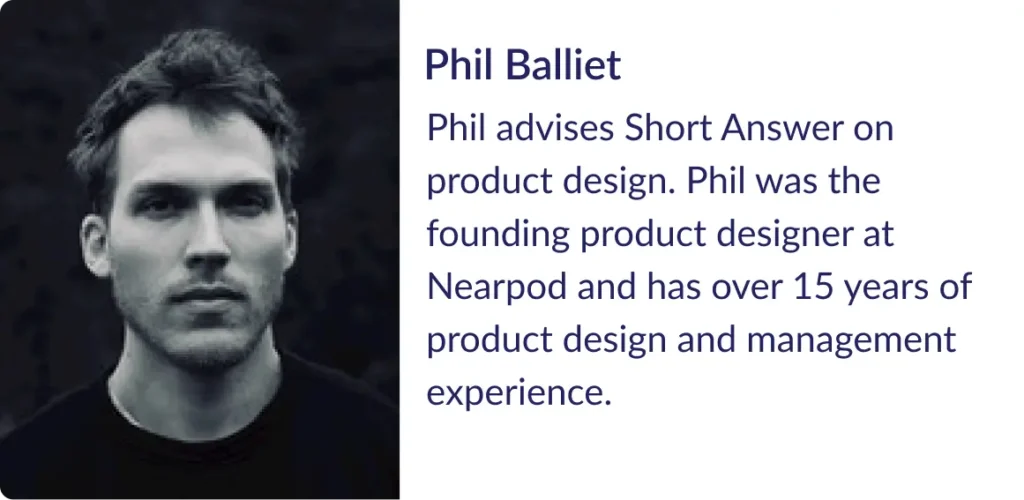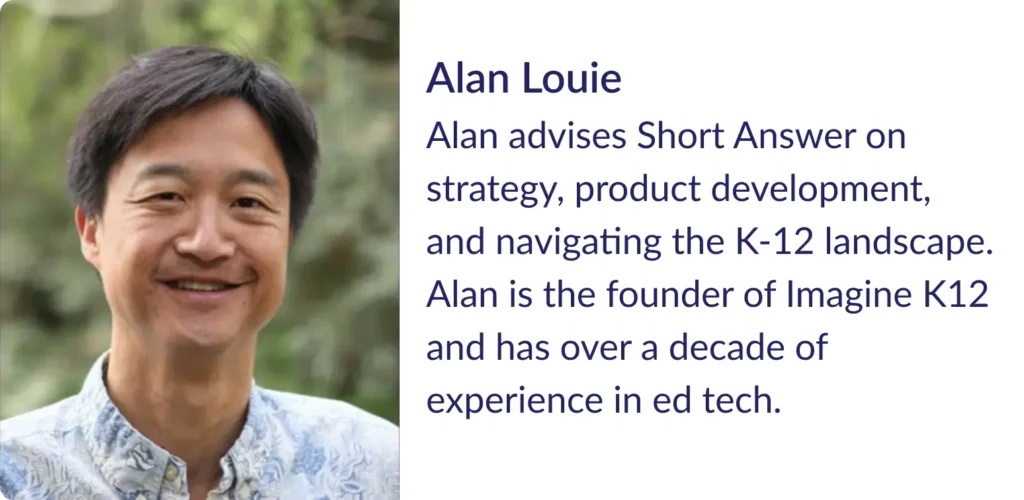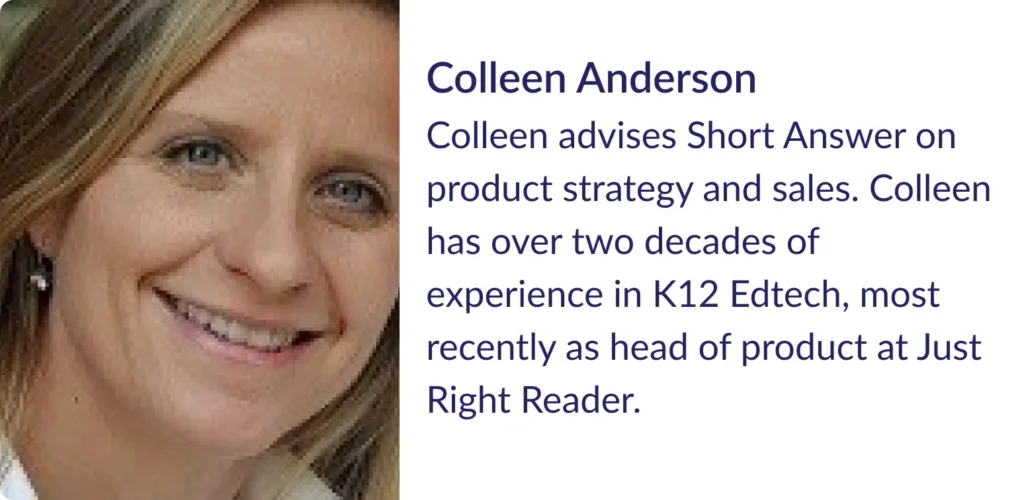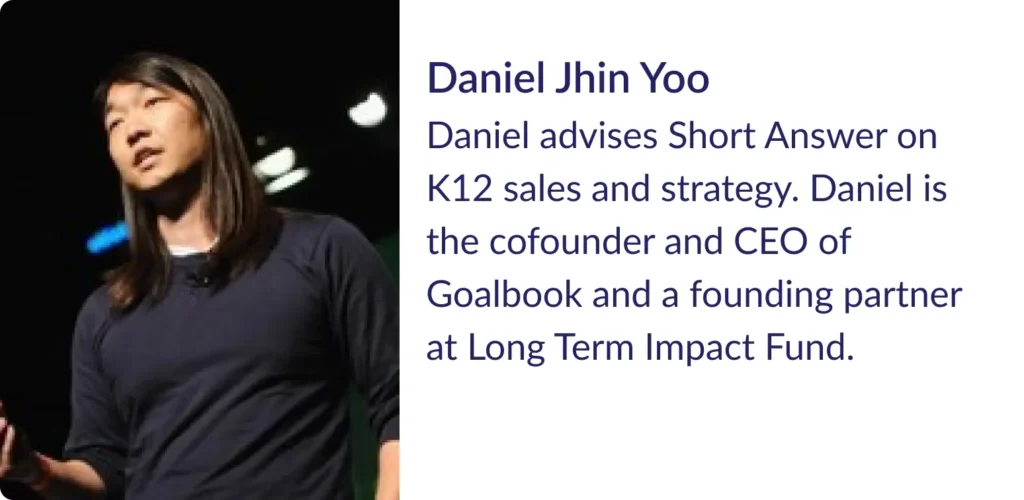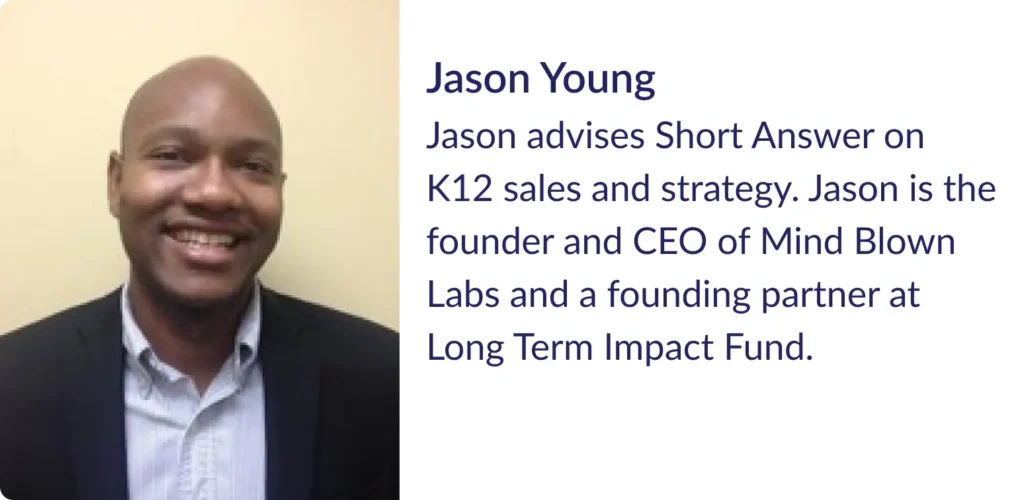Our Story
The Early Days
Short Answer grew out of my (Adam Sparks, cofounder) frustrations as a teacher. I’d spend large chunks of my weekend grading papers (I taught English & Social Studies) only to hand back those papers and have students ignore my feedback, look at their grade, and move on. At the same time, when I would use tech tools in my classroom that involved students sharing their work with others, the room would transform: Students were completely locked into the learning. So, in my free time, I started to design a platform with the specific goal of making it fun for students to give and received feedback effectively. I knew nothing about design, so I used Google Slides.
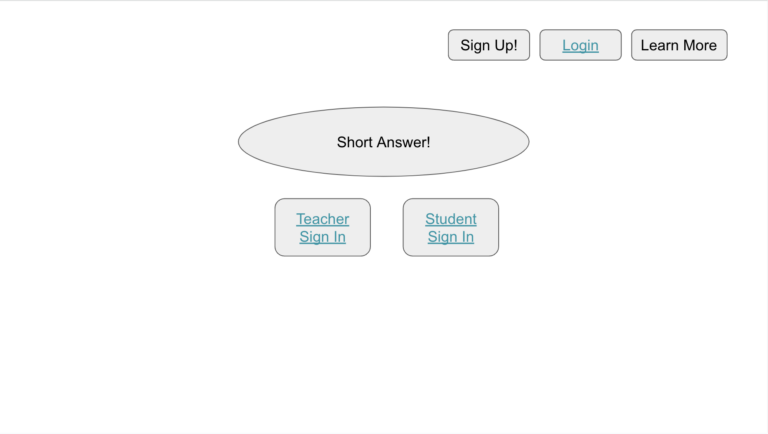
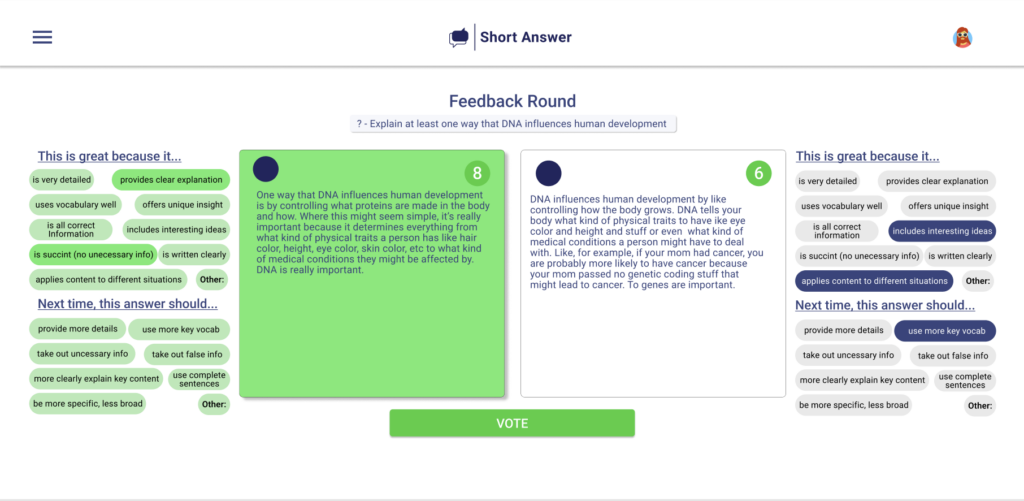
LDT at Stanford
To pursue my newfound interest in edtech design, I applied to Stanford’s Learning Design & Technology program. When I was accepted, I decided to leave the classroom and head to California. In LDT, I collaborated with cohort members and educational researchers at Stanford to build the initial prototype of what became Short Answer.
The Launch
What began as my master’s capstone project soon grew into something much larger when Short Answer won both the Stanford Learning Design Challenge and the Futures Learning Tools Competition. My wife Alexa had been coding Short Answer in her free time, but with grant funding and the encouragement of leading educational researchers, we decided to go All-In (😉 Short Answer teachers understand that pun) on Short Answer. We remain a husband-wife team today.
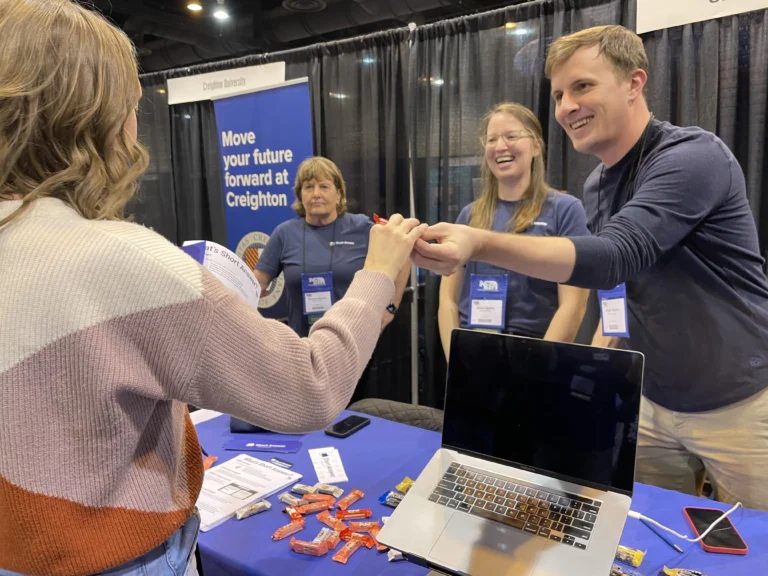
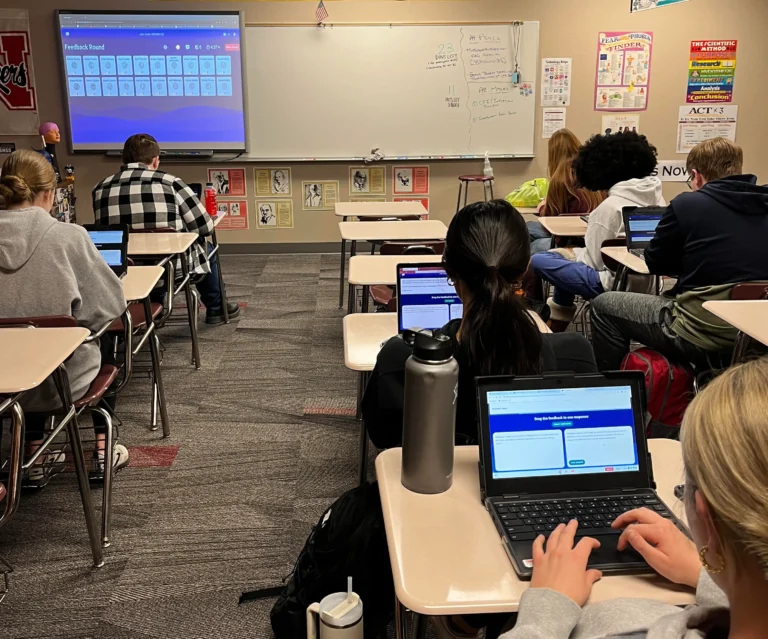
Short Answer Today
Short Answer finished its first full school year in June of 2024. We have quickly grown to reach tens of thousands of teachers and students across all 50 states and 10 countries. We couldn’t be more excited to support K12 teachers as they navigate the new reality of writing instruction in an AI infused word. We’re excited to work together to build better writers through engaging, human-to-human approaches to writing instruction and practice.

